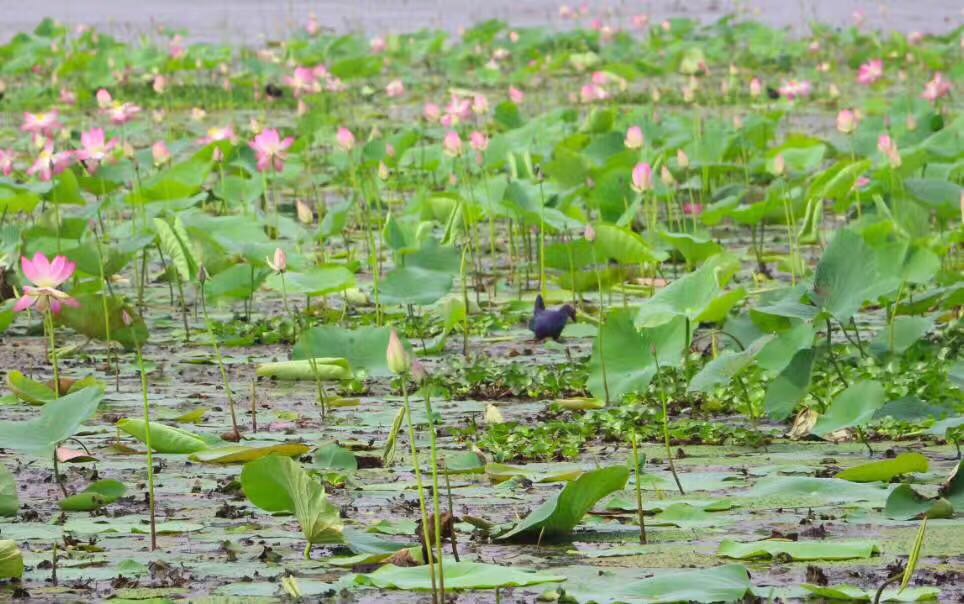Wetland is an ecosystem rich in biodiversity and high productivity in nature. It not only has abundant resources but also has tremendous environmental regulation function and ecological benefits. Wetlands play an important role in improving water supply resources, regulating climate, conserving water sources, homogenizing flood, promoting siltation and land-making, degrading pollutants, protecting biodiversity and providing production and living resources for human beings.
Bangladesh is a country with many delta alluvial plains, making it one of the most important wetlands in the world. To ensure the sustainability of natural resources, the government of Bangladesh, with the help of local non-governmental organizations (NGOs) and donors such as the United States Agency for International Development (USAID), has launched a number of forest and wetland projects on natural resource management (NRM), public resource repository (CPR) management and conservation plans. In Baikka Beel, one of Bangladesh's most successful wetland conservation cases, nearly 70 species of birds, nearly 100 species of fish and other wildlife grow freely with lotus, trees, and grass, and coexist organically with the people of surrounding communities. A large number of people rely heavily on the wetland. As a result, the organizers of the conference organized field study by representatives, and through communication with local villagers and stakeholders, learned that wetlands have an important impact on all aspects of local production and life. Delegates from all sides discussed the importance of wetlands from the perspectives of supply, management, culture, and support, and rated the role of wetlands in a local, regional and global level. After field study, the positive significance of wetland ecosystem services is summarized by the representative of CBCGDF as follows:
Ecological Benefits
Wetland biodiversity plays a very important role. There are abundant wild animals and plants that depend on Baikka wetland to survive and reproduce, many of which are unique and rare species. Baikka wetland is the habitat and breeding place of endangered birds, migratory birds, and other wildlife, with unique and rich biodiversity.
Economic Benefit
Wetland provides abundant animal and plant products. Agriculture, fisheries, animal husbandry, and sideline production depend to a considerable extent on natural resources provided by wetlands; water resources are provided. Water is an indispensable energy source for human beings. Wetland is the main source of water for the development of industry, agriculture and urban life; energy and water transport. Wetlands can provide many resources. Water energy reserves occupy first place in the world and have great potential for development. Directly digging peat from the wetland is used for burning. Forest and grass in the wetland are important energy sources in rural areas around the wetland.
Social Benefits
Tourism and Sightseeing. Wetlands have the aesthetic functions of sightseeing, tourism, entertainment and so on. Many important tourist scenic spots are distributed in wetland areas, which have the value of education and scientific research. Wetland ecosystems, diverse flora and fauna communities, and endangered species play an important role in scientific research. They provide objects, materials and experimental bases for education and scientific research. Some wetlands retain the information of past and present biological and geographic evolution process, which is of great value in the study of environmental evolution and paleogeography.

(Photo credit: CBCGDF)
Original Chinese article:
http://www.cbcgdf.org/NewsShow/4937/8130.html
By / Li Xue
